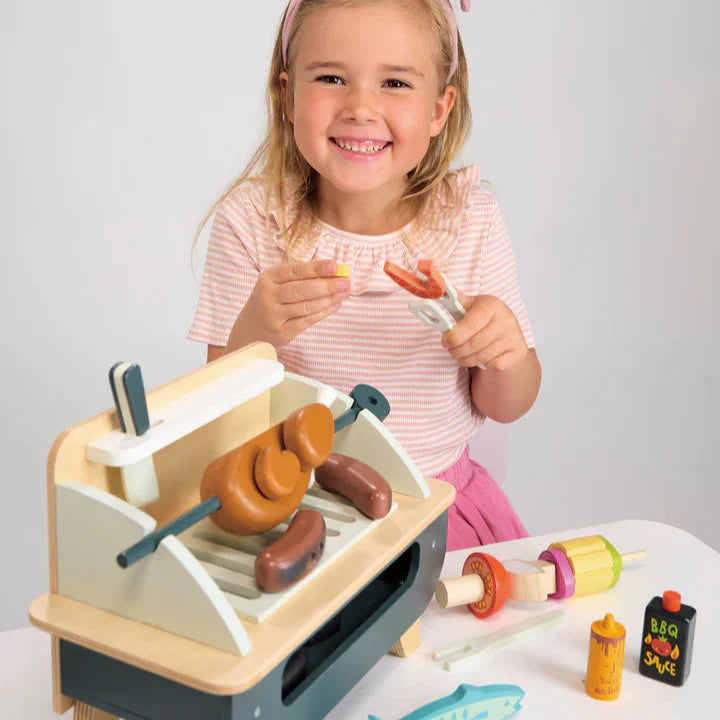The Power of Puzzles: From First Knobbed Shapes to Logical Thinking
Share

Early Puzzles: Where It All Begins
In the Montessori world, puzzles aren’t just “quiet time activities” (though, let’s be honest, those peaceful five minutes can feel like a small miracle). They’re foundational tools for building coordination, concentration, and problem-solving skills.
Sometimes that peaceful moment is interrupted by a little one proudly handing you a puzzle piece they’ve been chewing on like a biscuit or placing it triumphantly in your slipper. And that’s okay; learning is messy, funny, and full of unexpected detours.
“What the hand does, the mind remembers.” -Maria Montessori
For infants and toddlers, we start with simple, tactile puzzles that match their stage of development. These not only strengthen tiny hands but also prepare their brains for more complex problem-solving later on.
Montessori tip: Before a child is ready for puzzles, they’ll often show interest in:
- Dropping shapes into a container
- Placing objects into matching holes
- Repeating a movement just for the joy of mastering it
When you spot these signs, your child is basically saying, “I’m ready for more!” Maybe not in so many words, but possibly with a determined grunt and an impressive side-eye.
Why Knobbed Puzzles Matter
Ever watched your toddler pick up the tiniest crumb with laser focus while ignoring the toy beside them? That determination is exactly why knobbed puzzles shine. They build the pincer grip, the same skill needed for spoons, buttons, and later pencils. These puzzles give little hands a workout: grasping knobs, placing pieces, refining coordination, strengthening wrists, and laying the path to everyday independence.
Once this skill is set, children move on to multiple-shape knobbed puzzles - spotting shapes, testing fits, and sharpening spatial smarts. Picture a toddler chanting, “square goes here!” with the same confidence they put into shuffling around in your shoes. Next come inset puzzles without knobs, calling for steadier hands and patient trial-and-error. It’s the playful rhyme of fit, twist, and try, until one day, click, it slides in just right. These stages bridge the way to jigsaws and bigger problem-solving adventures, piece by piece.
The Stepping Stones: From Simple to Complex
As your child’s skills grow, puzzles evolve right alongside them:
- Interlocking and sensory puzzles → Early motor coordination and bilateral skills
- One-piece puzzles → Shape recognition and pincer grip
- Multiple-shape puzzles → Matching and spatial awareness
- Inset puzzles with no knobs → Refined control and logical trial-and-error
- Interlocking puzzles (jigsaws) → Visual memory, sequencing, and patience (for both of you)
In Montessori, we only offer one puzzle at a time to help the child focus! No sensory overload from 5 different half finished puzzles scattered around.
Puzzle Picks for Every Stage
First Sensory Puzzle – 3m+
QToys Dual Discs
- Dual-purpose discs for hand-to-hand transfer
- Encourages wrist rotation to build bilateral coordination
- Smooth, rounded edges provide teething relief
- Compact 8 cm size ideal for little hands and on-the-go play
- Perfect for keeping in the nappy bag or as a thoughtful newborn gift
Simple, Focused Play – 12m+
Wooden Single Shape Puzzle Set of 4 – QToys
- One shape per board, perfect for introducing matching skills without overwhelm
- Develops pincer grip and sequencing skills
- Progressively add more boards as skills grow
- Start by introducing just one puzzle at a time and rotate every few days for sustained interest
First Puzzle Confidence – 18m+
Giant Wooden Shape Knob Puzzle – QToys
- Five bold shapes (circle, square, oval, triangle) with chunky knobs for little hands
- Builds fine motor skills, hand–eye coordination, and spatial awareness
- Nurtures early problem-solving and quiet concentration
- Exceeds safety standards—peace of mind for parents, fun for toddlers
Ollie the Owl’s Favourite Challenge – 2y+
Hooty Owl Knob Puzzle – QToys
- Adorable owl design (in our home, all owls are affectionately called “Ollie the Owl”)
- Chunky knobs perfect for developing hand strength and control
- Encourages shape recognition, matching, and storytelling
- Crafted from sustainable wood with child-safe finishes
- A sweet, character-based puzzle that doubles as a friendly face on the shelf
Early Literacy Meets Play – 3y+
Natural Wooden Lowercase Alphabet Puzzle – QToys
- Tactile, two-tone lowercase letters for phonics exploration
- Pieces can be used in sand trays, spelling games, or letter hunts
- Montessori-aligned size and design for literacy-rich play
- Supports safe tactile exploration while reinforcing early letter recognition skills
Sustainability & Safety Note: All of these puzzles are crafted with responsibly sourced hardwoods and finished with natural oils, beeswax, or non-toxic paints. They meet or exceed safety standards, ensuring peace of mind for parents and safe, beautiful play for children.
Logic, Problem-Solving, and That “Aha!” Moment
Beyond the motor skills, puzzles strengthen executive function - the brain’s ability to plan, sequence, and adapt when things don’t go as expected.
These moments help children:
- Develop perseverance without frustration
- Understand part–whole relationships
- Think ahead and make predictions
Encouragement, especially with older children is key. Offer gentle support, practise turn-taking, and cheer them on as they try to work things out themselves. Once they can truly do it on their own, the look on their face is pure gold: that sparkling mix of pride, confidence, and joy that makes all the patient waiting worth it.
“Every puzzle solved is a little victory of patience and curiosity.” -Anonymous
One Last Piece of the Puzzle
You don’t need a cupboard full of puzzles. A few well-chosen, age-appropriate options, rotated regularly, will keep the challenge fresh. And if you ever find yourself completing your child’s puzzle after they’ve wandered off… congratulations, you’ve just joined the Parents Who Finish Things Club.
“It is not what you do for your children, but what you have taught them to do for themselves, that will make them successful human beings.” -Ann Landers

